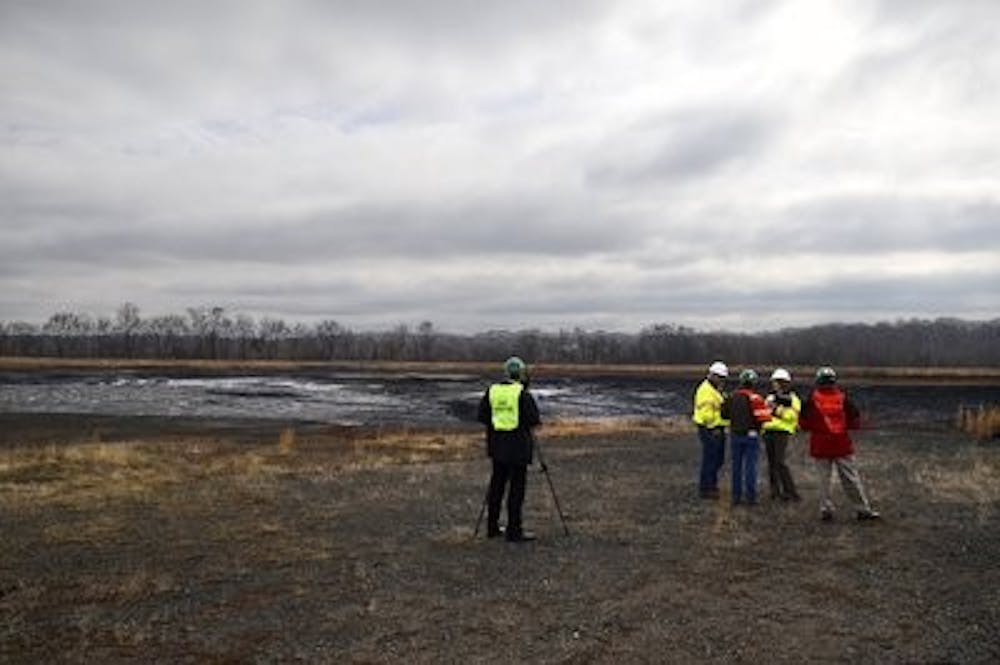In an ongoing legal battle over coal ash basin clean-up between Duke Energy and the N.C. Department of Environmental Quality, parts of the energy company’s appeals have been rejected, shifting focus on how the sites will be handled.
On Aug. 2, the judge presiding over the energy company’s appeal of the DEQ’s coal ash closure decisions issued an order in favor of the DEQ. The new ruling reaffirmed the DEQ’s authority to select the proper closure methods for nine of the 31 coal ash basins.The case will now focus on whether excavation is the proper closure method for the basins.
State and federal law points to capping in place and excavating to a lined landfill as the two primary methods to close a coal ash basin. Citing the Coal Ash Management Act, which was designed to close the coal ash basins in a timely fashion, the DEQ ordered Duke Energy to close the remaining nine coal ash basins by excavation in April.
Paige Sheehan, a spokesperson for Duke Energy, argued the state has chosen the most extreme, costly and time-consuming closure method for the lowest-risk basins.
“Why in heaven's name would you want to subject a community to an industrial construction type project of scooping every bit of ash out of an ash basin and moving it to a new location?” Sheehan said. “Why would you want to do that for 35 years when you can get the same environmental outcome, which is you're protecting people and the environment, specifically groundwater, by capping it in a handful of years?”
But Duke Energy faces opposition from communities close to these sites. Environmental groups like the Southern Environmental Law Center represent communities trying to protect the water around the sites.
Nick Torrey, an attorney with the SELC, said Duke Energy has had problems with coal ash, including dam failures and spills like the 2014 Dan River spill. He said these spills highlight the importance of recycling or quickly moving coal ash into lined landfill storage.
Torrey said the Dan River spill sparked new coal ash legislation that would require Duke Energy to submit reports documenting structural problems, contamination and leaks for the past five years on the coal ash sites.
Torrey said the SELC approves of the state’s decision that the remaining coal ash sites in North Carolina be cleaned up, but now the case will shift to how that clean-up should happen.



